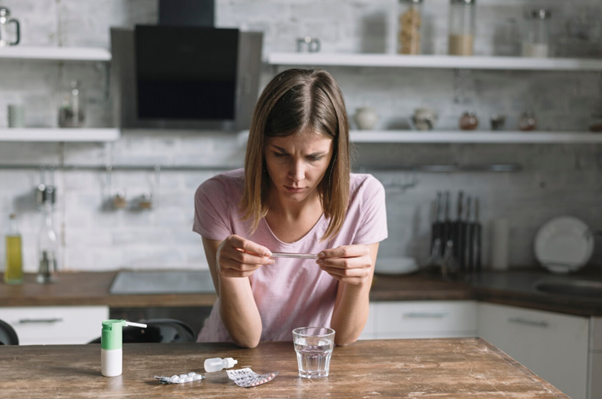15 Depression Myths Debunked
Depression is a widely misunderstood condition, surrounded by myths and misconceptions that can hinder both understanding and treatment. By debunking these myths, we can better support those affected and promote healthier approaches to mental health.
Myth 1: Depression Is Simply Being Sad
Many people confuse depression with just feeling sad. However, depression is a complex mental health disorder that impacts daily functioning and involves a range of emotional, physical, and cognitive symptoms. It’s more than just having a bad day; it’s a persistent condition that requires understanding and medical attention.
Myth 2: Depression Is a Sign of Weakness
This myth can be particularly harmful as it suggests that those who suffer from depression are somehow less resilient or strong. In reality, depression is a medical condition that can affect anyone, regardless of their strength or character. It’s about brain chemistry, life experiences, and more—not personal weakness.
Myth 3: You Can Snap Out of Depression
People often believe that those with depression can simply choose to feel better. Unfortunately, depression is not a choice, and it cannot be willed away any more than a broken leg or a chronic disease like diabetes. Treatment often involves therapy, medication, or a combination of both.
Myth 4: Medication Is the Only Way to Treat Depression
While medication can be an effective treatment for many individuals, it’s not the only option. Therapy, lifestyle changes such as exercise and diet, and social support also play crucial roles in managing depression. Each person’s treatment plan is unique and can include a variety of approaches.
 Myth 5: Depression Doesn’t Affect Physical Health
Myth 5: Depression Doesn’t Affect Physical Health
Depression is not just a state of mind; it has physical consequences as well. It can lead to a variety of physical symptoms like changes in appetite, sleep disturbances, and chronic pain. Moreover, it can exacerbate other health conditions, emphasizing the need for holistic treatment approaches.
Myth 6: Depression Is Always Triggered by a Specific Event
Many believe that a specific event, such as a traumatic incident or a major life change must trigger depression. However, depression can develop
Myth 7: Depression Only Affects Adults
This myth disregards the fact that depression can affect individuals of all ages, including children and adolescents. Young people can experience depression, though their symptoms might manifest differently than those in adults. Parents, teachers, and caregivers must recognize these signs early to provide appropriate support.
Myth 8: Talking About Depression Makes It Worse
Some people hesitate to discuss depression for fear that talking about it might deepen the sufferer’s despair. In reality, openly discussing depression can provide relief and is often the first step towards healing. It helps individuals feel understood and supported, which are crucial components of recovery.
 Myth 9: Depression Is the Same for Everyone
Myth 9: Depression Is the Same for Everyone
Depression manifests differently in each individual. While some might experience severe symptoms that hinder their daily activities, others might have mild, chronic symptoms that persist over years. Understanding this variability is key to recognizing and treating depression effectively.
Myth 10: If You Have Depression, You Will Always Suffer From It
This myth can be particularly discouraging for those diagnosed with depression. While depression is a chronic condition for some, many people do experience significant relief from their symptoms through effective treatment and management strategies. With the right support, it is entirely possible to lead a fulfilling life despite the diagnosis.
Myth 11: Antidepressants Change Your Personality
A common concern is that taking antidepressants will fundamentally change a person’s personality. In reality, when used correctly, antidepressants are designed to help alleviate the symptoms of depression and help individuals return to their pre-depression self. They do not create a new personality but rather help to stabilize mood and improve overall functioning.
Myth 12: Depression is Just a Lack of Willpower
This myth perpetuates the idea that individuals can overcome depression through sheer willpower. Depression is a complex medical condition influenced by numerous biological, psychological, and social factors, and it requires appropriate medical treatment—just like any other illness.
 Myth 13: Depression Always Requires Professional Treatment
Myth 13: Depression Always Requires Professional Treatment
While professional treatment is vital for many dealing with depression, suggesting that it’s the only way can discourage those who might benefit from other supportive measures. Alongside professional help, peer support groups, self-help strategies, and lifestyle changes can also provide significant benefits and are vital components of a comprehensive treatment plan.
Myth 14: You Can’t Help Someone With Depression
People often feel helpless when trying to help someone with depression, thinking that only professionals can make a difference. However, offering support, understanding, and empathy can be incredibly beneficial. Simply being there for someone, listening without judgment, and offering encouragement can provide significant emotional support.
Myth 15: Depression Isn’t a Real Illness
Despite being a diagnosable medical condition, some still believe that depression isn’t a “real” illness like heart disease or diabetes. However, depression has well-documented biological bases, including changes in brain chemistry and function. Recognizing depression as a real illness is crucial for validating the experiences of those affected and ensuring they receive appropriate care.
Get the Support You Deserve
If you’re struggling with depression, Comprehensive Counseling Services, LLC is here to help. Our mental health clinic in Barrow County offers specialized treatments like behavioral therapy, anxiety counseling, and depression treatment. Each plan is tailored to your unique needs, helping you manage and overcome your symptoms.
Contact us today for a session with a licensed therapist in Winder and start your journey to recovery!

